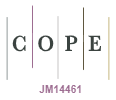Literature hardware, reading software: literary works as pedagogical tools in the learning process
DOI:
https://doi.org/10.5585/eccos.n70.26508Keywords:
education, literature, technologiesAbstract
There is, without a doubt, a relevant interference of technological development in social relations in general, and in school relations, in particular. Aware, therefore, of the existence of fast information in circulation, not always of quality, why not invest in the construction of educational and awareness networks? It is from this proposition, therefore, that we take the opportunity to raise an important but often overlooked question: In this brave new world, what would be the relevance of literature in the cultural and intellectual formation of young people in school activities? Our hypothesis, therefore, is that, as literature is a cultural asset, whose value proves to be inestimable for society, it naturally has the power to contribute greatly to the development of students, not only aesthetically, but also equally cognitive. Therefore, reading provides a form of integration. In these terms, literature effectively proves to be a useful and effective tool for any and all types of learning; an affable teaching instrument that, combined with the aforementioned irredeemable technology, has the capacity to equally meet the demand of this entire new generation of students, for non-linear and multifocal reasoning. It is known that there is a fine line between the real and the fictional. In this sense, not only all types of social studies, but all forms of knowledge must be connected to literature and, through digital media, an integration mechanism must be formed between students and society. By way of conclusion, it is possible to reach a consensus that literary studies are not only of interest to linguists (Leahy-Dios, 2004). They are, in fact, as fundamentally relevant to education as it is to the cause of teaching/learning to think.
Downloads
References
ABDALA JUNIOR, Benjamim. História Literária e o ensino das literaturas de língua portuguesa. In: BARBOSA, Márcia H. S.; BECKER, Paulo (Org.). Questões de literatura. Passo Fundo: UPF Ed., 2003.
BASTOS, Neusa Barbosa; PENALBER, Mônica. Uma análise discursiva do protagonismo digital. In: BASTOS, Neusa Barbosa; CASAGRANDE, Nancy dos Santos. (Org.). A Análise do discurso: perspectivas em distintos campos discursivos. São Paulo: Líquido, 2021.
BORTONE, Marcia Elizabeth; MARTINS, Cátia Regina Braga. A construção da leitura e da escrita: do 6º ao 9º ano do ensino fundamental. São Paulo: Parábola Editorial, 2008.
BURLAMAQUI, Marco. Pensar a pedagogia do futuro: textos educativos e pedagógicos. Brasília: Pró-Consciência, 2022.
BRANDÃO. Carlos Rodrigues. O que é educação. São Paulo: Brasiliense, 2007.
CALKINS, L. A arte de ensinar a escrever. Porto Alegre: Artes Médicas, 1989.
CANDIDO, Antonio. Formação da literatura brasileira: momentos decisivos. São Paulo: Martins Fontes, 1959.
DESMURGET, Michel. A fábrica dos cretinos digitais: os perigos das telas para nossas crianças. Tradução Mauro Pinheiro, São Paulo: Vestígio, 2021.
FÁVERO, Leonor Lopes. Produção de texto e ensino de língua portuguesa. In Linha D'água, Revista da Associação dos Professores de Língua Portuguesa. São Paulo: n. spe, p. 33-65, jun. 1995.
FERNANDES, Rogério. A história da educação no Brasil e em Portugal: caminhos cruzados. Revista Brasileira de Educação. [online]. 1998, n. 7, pp. 05-18. ISSN 1413-2478.
FREIRE, Paulo. A importância de ler: em três artigos que se completam. 23. ed. São Paulo: Cortez, 1989.
GOLDBERG, Jacob Pinheiro. Cultura da agressividade. 3. ed. rev. e ampl. São Paulo: Landy, 2004.
GOLDMANN, LUCIEN. Pour une sociologie du roman. Paris: Gallimard, 1964.
GOLDSTEIN, N. S. Linguagem usual e linguagem literária. In Projeto 'Atualização em Língua Portuguesa para Professores de 2º Grau', Módulo IV - O Poema na sala de aula, organizado por Lygia Corrêa Dias de Moraes e Irenilde Pereira dos Santos. São Paulo: FFLCH/USP/VITAE/SE, 1993.
LEAHY-DIOS, Cyana. Educação literária como metáfora social: desvios e rumos. São Paulo: Martins Fontes, 2004.
LUKÀCS, György. Teoria do romance. Tradução Alfredo Margarido, Lisboa: Presença, 1972.
MELO, Alessandro de. Fundamentos socioculturais da educação. Curitiba: InterSaberes, 2012.
MENEZES, Ronny Diogenes de; SILVA, Ana Caroline Pereira da; SOUZA, Fábio Marques de. Recursos multimodais como mediadores da aprendizagem de línguas adicionais. In: ALBUQUERQUE, Helder Neves de; et al. (Org.). Multiletramentos, recursos multimodais, política & educação. Campina Grande: Instituto BioEducAção, 2019.
MINISTÉRIO DA EDUCAÇÃO. A leitura como ferramenta de aprendizado. https://www.gov.br/capes/pt-br/assuntos/noticias/a-leitura-como-ferramenta-de-aprendizado Acesso em 11 abr. 2024.
ORLANDI, Eni Pulcinelli. Discurso e leitura. 8. ed. São Paulo: Cortez, 2008.
PAULA, Laura da Silveira. Teoria da literatura. Curitiba: InterSaberes, 2012.
PROENÇA FILHO, Domício. Língua portuguesa, literatura nacional e reforma do ensino. Rio de Janeiro: Liceu, 1973.
ROCHA, Carlos Alves. Mediações tecnológicas na educação superior. Curitiba: InterSaberes, 2013.
SCHOPENHAUER, Arthur. Sobre o ofício do escritor. Tradução Eduardo Brandão; Luiz Sérgio Repa, São Paulo: Martins Fontes, 2005 (Org. Franco Volpi Obras de Schopenhauer).
SPONCHIATO, Diogo. Os livros nos tornam mais humanos diz neurocientista Michel Desmurget., 2024. Disponível em: https://veja.abril.com.br/paginas-amarelas/os-livros-nos-tornam-mais-humanos-diz-neurocientista-michel-desmurget. Acesso em: 8 abr. 2024.
SUASSUNA, Ariano. Iniciação à estética. 8. ed. Rio de Janeiro: José Olympio, 2007.
TENENTE, Luiza. Por que a Suécia desistiu da educação 100% digital e gastará milhões de euros para voltar aos livros impressos? 2023. Disponível em:
https://g1.globo.com/educacao/noticia/2023/08/07/por-que-a-suecia-desistiu-da-educacao-100percent-digital-e-gastara-milhoes-de-euros-para-voltar-aos-livros-impressos.ghtml. Acesso em: 4 abr. 2024.
VERÍSSIMO, José. História da literatura brasileira. Rio de Janeiro: Francisco Alves, 1916. (Domínio público: http://www.dominiopublico.gov.br/download/texto/bn000116.pdf).
YUNES, E. Pelo avesso: a leitura e o leitor. Curitiba: Editora da UFPR, 1995 (n. 44).
Downloads
Published
How to Cite
Issue
Section
License
Copyright (c) 2024 José Eustáquio Romão, Claudio Gomes de Araujo Junior

This work is licensed under a Creative Commons Attribution-NonCommercial-ShareAlike 4.0 International License.






